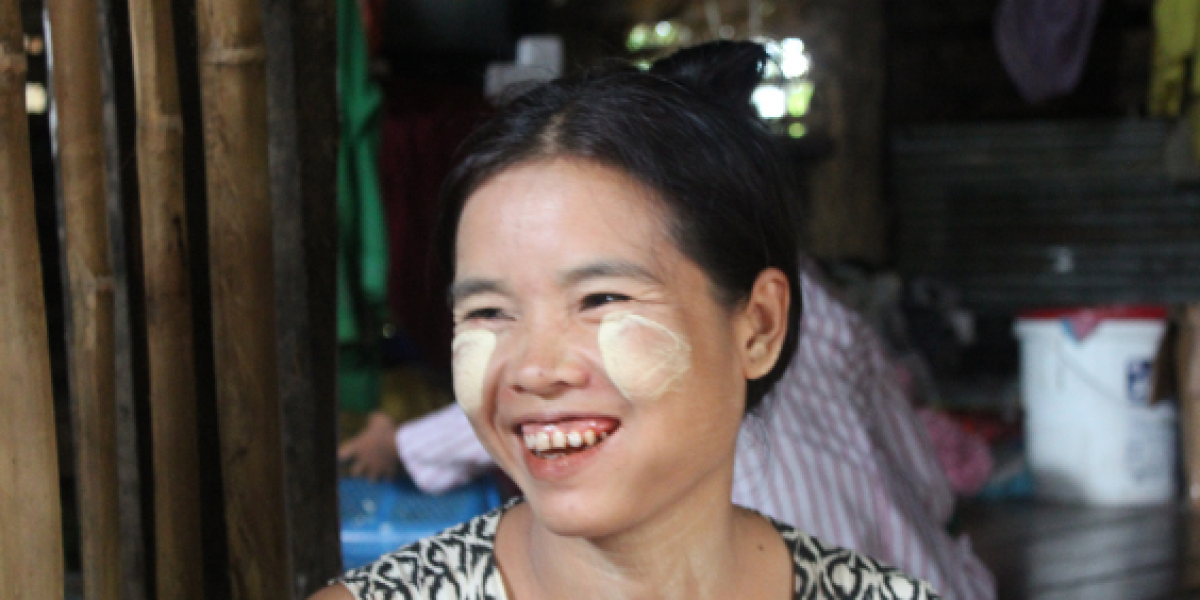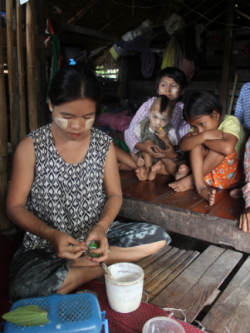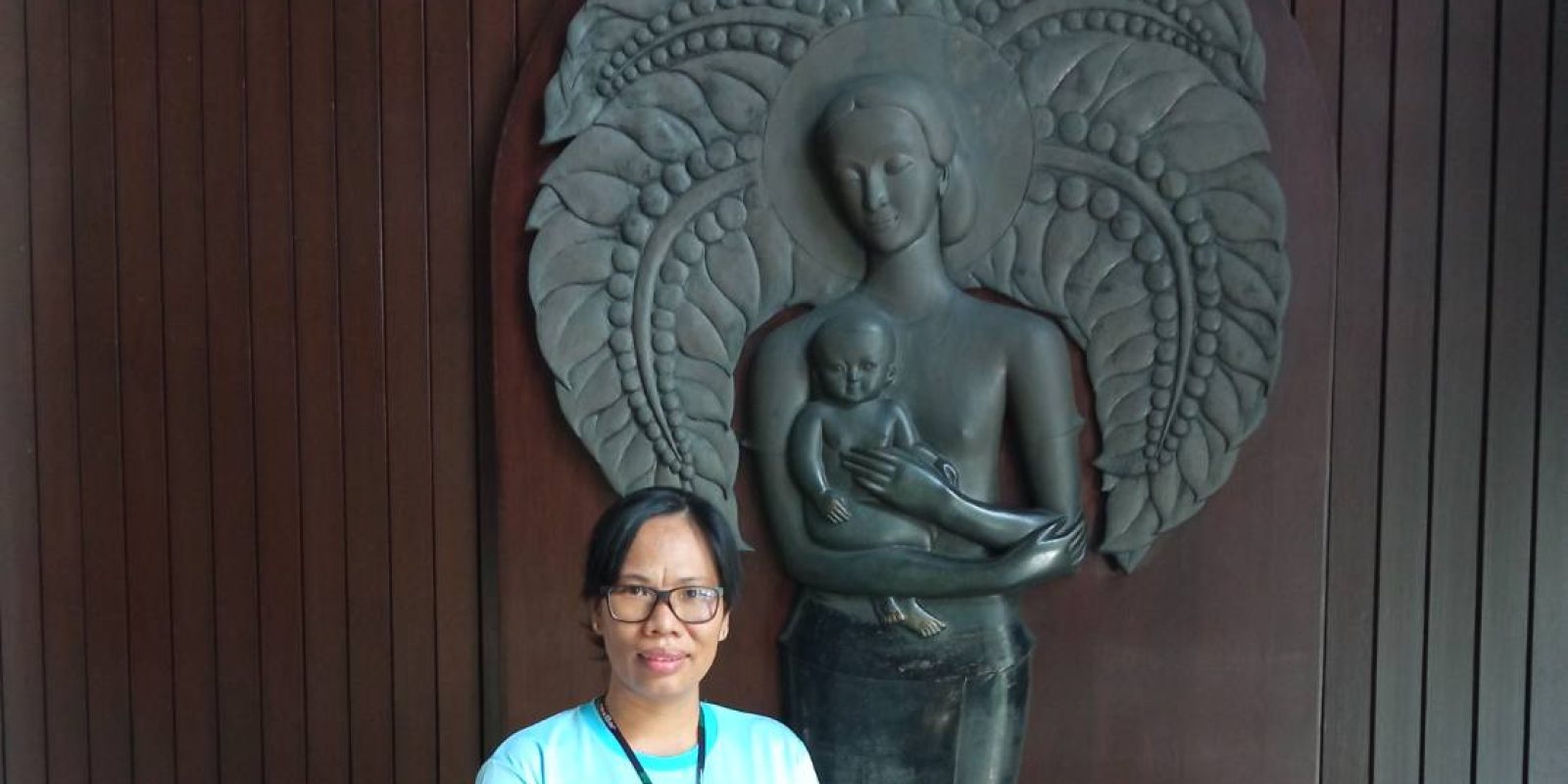Thailand: Arriving with nothing but giving everything
17 June 2011


Mae Sot, 20 May 2011 – Marlar sat on the bamboo floor of her home that serves as a shop, safe house and sometimes-medical clinic. She prepared betel nut, a mixture of tobacco and areca nut and lime wrapped in a betel leaf, for the visiting JRS staff to chew while she told us about her work.
She smiled a red, nut-stained grin as I put the leaf in my mouth, waiting until I started to chew to tell me, “this tobacco is particularly strong.”
She didn’t seem tired, which is remarkable seeing as how yesterday she was called to a home at 2 a.m. to deliver a baby, the second baby she delivered in a week.
It is hard to know what an average day is like for Marlar, who migrated to Thailand in 2000. In what little spare time she has, Marlar acts as a medic to her community and welcomes people into her home which has become a safe house for newly arriving migrants until they can find work. She also runs a shop that JRS Mae Sot helped her set up with start-up materials, so people in her rural community do not have to travel far and cross the main road for food, where they would risk arrest.
“I pray every day,” she said. “God gives me the strength to survive and shows me the way.”
After being a nurse in Rangoon, the capital of Burma, she decided to take her skills to Thailand 11 years ago, where she educates people about family planning and reproductive health. She also spends much of her time advocating to parents to enrol their children in education, and works with local schools to arrange transport.
“These children are the next generation of Burma, and need a good education,” she said.
But when she first arrived, with no family or support network to depend on, her medical skills were put on hold while she struggled to support herself.
“When I arrived, I worked in a clothing factory with long hours,” she said. “I worked from 7 (a.m.) until midnight, sometimes three in the morning with overtime.”
She then worked as a daily labourer in the rice fields during the harvest. And while the hours were still long and the work was tough, she enjoyed “the freedom. The factory was confined and I could never take time off if people needed me.”
And people in her community do need her. Many are unable to get to the medical clinic in town, and their vulnerable status makes it difficult to wander far from home. Now that she runs a business from home, and the 40-50 customers she has daily come after work at night, she is free to assist people living in the rural area during the day.
After several meetings with JRS staff to discuss her plan, she proved to have the business knowledge to maintain a shop even when most of her customers buy on credit from time to time when fieldwork is scarce. Just a few months after JRS helped her to start the shop, she was able to pay back her personal debt and now runs a self-sustaining business. Without support, many migrants are stuck looking for funds from loan sharks, many who charge up to 100 percent interest per month.
“More than supporting me financially, JRS supported me emotionally and stands by these vulnerable groups,” she said.
But our conversation with Marlar was cut short when she told us that she needed to visit a woman who was “experiencing a very painful skin rash.” I spit out the rest of my betel nut while Marlar made sure the people staying at her safe house were looked after, letting one older woman look after three young children. We made our way to the truck where she instinctually got into the back before we beckoned her inside. She directed us through the hills of rice to this woman’s home, one of many Burmese bamboo stilted houses that dot the Thai-owned plantations.
When we got inside, Marlar was the first to notice that this woman didn’t have a skin rash. The growths on her neck, wrapped in leaves and gauze and the lesions on her back were a sign of something worse. It was clear she brought JRS representatives to this woman because she was too ill for Marlar to assist.
In her home, this woman dumped out a bag filled with dozens of bottles of traditional Burmese medicine. The doctors later said that this, along with the chemical pesticides floating in the air around her home were making the cancerous growths more painful, and less treatable.
Marlar, along with JRS, accompanied this woman to the clinic, where staff examined her to see if her cancer was too progressed to treat. Marlar got her new medication and assisted her back home.
All in a days work for a one-woman grass roots movement to educate, protect and assist her friends in the small migrant community.
“We come from the same country and we have to treat (the people who migrate) as neighbours,” she said.


